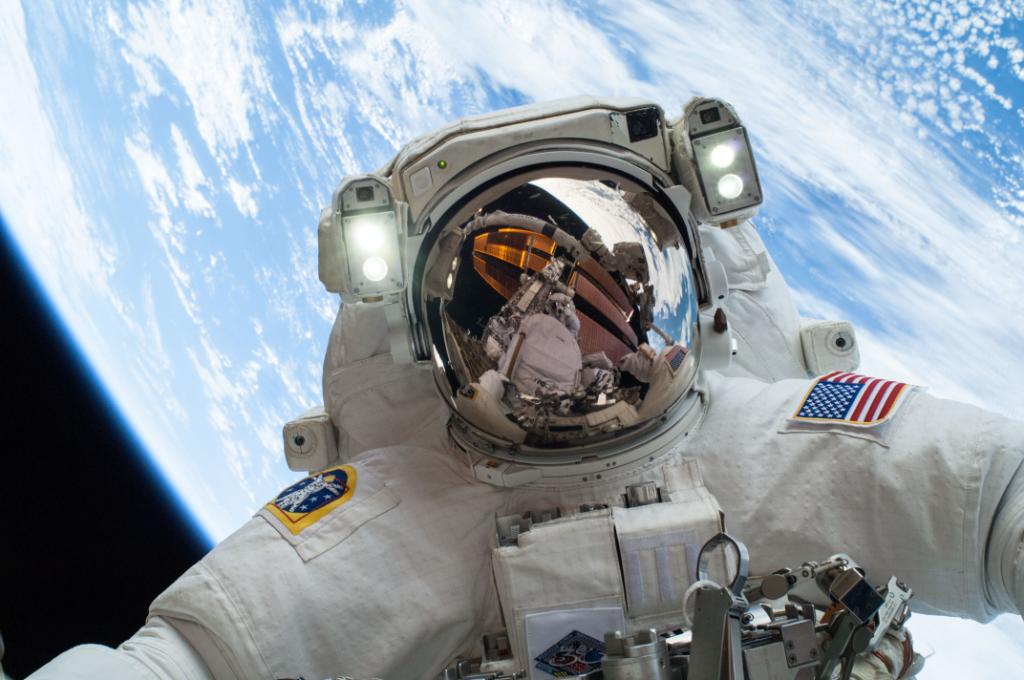How to Become an Astronaut in the UK
22nd Jun 2022
Many of us dreamt of becoming an astronaut as children. Somewhere along the line, bogged down in a sea of potential qualifications and limited opportunities, we might lose the zest for space. Actually, those opportunities might not be as limited as you once assumed, in a growing UK space industry.
According to a recent Government press release about ESA recruitment, the UK already employs close to 42,000 people in the space industry, and this figure is set to grow in the coming years.
So, how do you become an astronaut?
How to Be An Astronaut: Responsibilities and The Role Explained
Before we dive into exactly how to become an astronaut, it is a good idea to truly understand the role. What people may have seen in the movies doesn’t necessarily correspond to the lifestyle of actually being an astronaut.
You should be confident that when you become an astronaut you will have the skills and ability to handle the role. Qualifications are one thing, but mindset is another huge factor and before pursuing this career path it is a good idea to understand what sort of tasks you will be undertaking.
What skills do you need to be an astronaut? examples of the sort of responsibilities and what the job entails, and therefore the skills required, can be found below.
Preparing For (and Dealing With) Emergencies
This is a high-stakes game. For astronauts, when you are actually in space, there is a huge level of risk if the correct preparations are not taken. This means that astronauts need to spend a lot of their time preparing for these potential emergencies. This can involve running simulations and tests, and being able to deal with fires, loss of communications, loss of pressure or oxygen supply and other potential threats.
If you are the sort of person who copes well in an emergency then you may well have what it takes to become an astronaut.
Research and Experiments
A lot of the role involves spending long hours carrying out research and experiments. If you add up the time humans have actually spent in space, it is not that great a number. It takes a lot of effort and resources to send people to space, and this is why every last piece of research and data collected, analyzed, and collated can be absolutely crucial.
An all-round understanding of numerous areas of science and technology can help with this. Experiments could well extend to biology, chemistry, physics, meteorology, and even geology, depending on the scale and purpose of your mission.
Specific experiments may also be carried out to understand the conditions in space and how organisms react. Many of you will have seen the ‘ants in space’ experiment, exploring how ants cope in microgravity. Observing and tending to these experiments is a large part of the responsibility.
Maintenance and System Monitoring
There’s no AA service in space. There’s also no option to call in a mechanic if you have any issues on board.
For this reason, maintenance and monitoring, and even repairs, may be a big part of the role. Spacecraft aren’t exactly built like a 25-year-old hatchback, and a huge amount of resources have gone into making the craft, but that doesn’t mean that things can’t go wrong.
Monitoring all of the key systems on board, and performing maintenance tasks to keep everything running smoothly is crucial. For instance, you may need to monitor water and oxygen systems, vital to surviving the trip.
Communications
There should be a constant relay and communication with mission control. This doesn’t mean giving them a call to check in. It means using communications software competently to input and provide the data required, using satellites to send reports.
Mental Strength
This is definitely a “soft skill” but it is not one to ignore. Spending a long time in isolation or working in a small crew, with no real escape, can be challenging. This is not just about the time when you are deployed on a mission, either. The training will usually simulate these conditions, which means that if you wish to train to be an astronaut you will spend a lot of time away from family and away from home.
If you suffer from cabin fever after a few days spent at home then you might find that you need to build your resilience or come up with strategies to stay in these challenging conditions.
On top of that, the strength to deal with any potential emergencies is crucial for those with ambitions to become an astronaut. If something should go wrong, you need to be the kind of person to keep a cool head and use constructive thinking to try and resolve any issues. It helps if you can be a calming influence on others, too.
Requirement One: Astronaut Language Requirements
For most people in the UK, the language requirement to become an astronaut is easy enough. You need to be able to speak English fluently if you are to become an astronaut.
Astronaut language requirements have historically included being able to speak Russian. That added a complex layer to proceedings. However, the utility of being a Russian speaker in space is dwindling. Most tellingly, the recent ESA recruitment drive did not specify Russian language as a requirement to be an astronaut.
Requirement Two: Education
Astronaut qualifications in the UK and elsewhere in the world are usually varied. There isn’t one specific course or exam.
Beginning training with NASA (if you are an American citizen) or the European Astronaut Corps requires you to have plenty of qualifications already. The better you perform through school and at university, the higher your chances of becoming an astronaut are likely to be.
You’ll need both a degree and postgraduate qualification in a “relevant subject”. This is a vague description, but normally includes:
- The mainstream sciences (biology, chemistry or physics)
- Engineering
- Aeronautics
- Mathematics
- Medicine
- Computer sciences
Additional qualifications are also looked upon favourably. A Private Pilot’s License, SCUBA diving, and skydiving qualifications and experience are all valued, and the more knowledge and enthusiasm for space you can demonstrate, the better.
After all this education, and a successful application to the Astronaut Corps, you will be set for some rigorous training to become an astronaut.
This covers the basic aspects of being an astronaut (well, none of it is really basic).
You’ll learn more about the fundamentals of space flight, robotics, spacecraft systems, and flight training, plus a strict regime of physical activities to keep you fighting fit.
Requirement Three: Mental and Physical Health
Both your physical and mental health should be in top condition if you want to apply to become an astronaut. The European Space Agency explains that candidates should “demonstrate cognitive, mental and personality capabilities to allow them to work efficiently in an intellectually and socially demanding environment”.
While you don’t have to be an athlete in your prime, your physical health should be demonstrable, and the ability to run, and exercise for long periods of time will greatly help your application.
You must be able to provide the European Part-MED, Class 2 medical examination (Private Pilot medical certificate). If you are already a qualified Private Pilot this may be easy for you to provide.
Your physical and mental health may be monitored over a period of months, and you should be able to demonstrate that you are not reliant on any form of drugs. If you are, you probably won’t be considered. For instance, the studies into diabetic astronauts are limited, but at the moment, a dependency on insulin will prevent you from going to space. There’s always hope for the future.
Even after all of this, you might not be considered for the role. At the moment, the ESA requirements state that those “shorter than 150cm and taller than 190 cm are not able to be assigned to a space mission” due to the size of the craft.
Requirement Four: Persistence
In spite of all of these difficult criteria, there is a lot of competition, and this means that persistence is arguably the most crucial requirement of them all. There is every chance you may have to gain additional experience and qualifications, re-apply after getting rejected, or even make the decision to pursue a different route and type of space career.
Sadly, not everyone is accommodated. Though there are opportunities for disabled people aspiring to become astronauts from time-to-time, in some cases, issues like poor hearing or even your height can prevent you from being considered for missions and training.
In these cases, even persistence won’t help. Fortunately, the space industry still has many exciting roles that you can potentially pursue if you still feel you would like to be involved.
Applying to Become an Astronaut
One of the main routes for young people in the UK to apply to become an astronaut is to follow the European Astronaut Corps and wait for opportunities to join. These are rare, but it is likely that more opportunities will open in the future.
Those with US citizenship can also check out the Astronaut Selection Program from NASA, which is only open at certain times.
While waiting to apply, many will choose to work as a pilot and train to gain experience flying a fighter jet or similar aircraft, something that is viewed favourably when applying to become an astronaut.
How to Become an Astronaut For Kids: Explain Like I’m Five…
So your child wants to become an astronaut. What to tell them to keep the dream alive?
Start with the good news. There are bound to be more and more jobs becoming available in the UK space industry.
Next, make clear that this is hard work. Becoming an astronaut is a long process and the requirements to be an astronaut are stringent. In fact, sometimes, things you can do nothing about will hinder your chances.
There is plenty you can do to help your chances though. For kids, good habits to increase the chances of becoming an astronaut in the UK include:
- Study hard, especially in fields like science and maths, which are crucial for becoming an astronaut.
- Staying active and eating well. Physical health will be vitally important.
- Stay in school, being educated to postgraduate level is crucial.
- Learn about space. All the knowledge you can gain is potentially helpful in your future career, and in getting accepted for training programmes.
FAQs
What GCSE Do you need to be an astronaut?
Fortunately for many, the decision on what GCSEs to take may not make or break your ambitions to become an astronaut. It is the subjects chosen at further education levels that have more of an impact. However, a focus on science and technology subjects can stand a student in good stead if they wish to become an astronaut.
Can I join NASA from the UK?
NASA is probably the best-known of all space agencies at the moment. However, to join you need to hold US citizenship or joint citizenship, meaning that the majority of people who are looking into how to become an astronaut in the UK will not be able to pursue this.
What is the average IQ of astronauts?
There is no definitive “average IQ” taken across all astronauts, and there is no test carried out to check peoples’ IQ before they become astronauts either.
On early NASA missions, a study found that their astronauts had an average IQ of 136 points. NASA used to use testing as part of its recruitment process, and you can even try your hand at some of the questions. Now, recruitment is based on academic achievement and experience.
What disqualifies you from being an astronaut?
There are certain criteria for becoming an astronaut, even things outside of your control, that may hinder your chances. Some space agencies including NASA have a height range, based on the equipment you will need to use. People over 6’4” might not be able to work for the agency.
Other medical issues including high blood pressure and poor vision (or vision that can’t be corrected to a high level) can be a problem and prevent you from becoming an astronaut. We have already covered the fact that a decent level of fitness is required. For most people, this is something that can be corrected if they don’t currently meet the criteria. A gym membership could be key to becoming an astronaut.
Summary
The truth is that only a select few get to pursue the dream of becoming an astronaut. It’s gruelling, and competitive. But what could be more fulfilling than the opportunity to explore space and push the boundaries of human existence? For those who truly yearn for space, training to become an astronaut is a noble pursuit.






Thank you for your comment! It will be visible on the site after moderation.